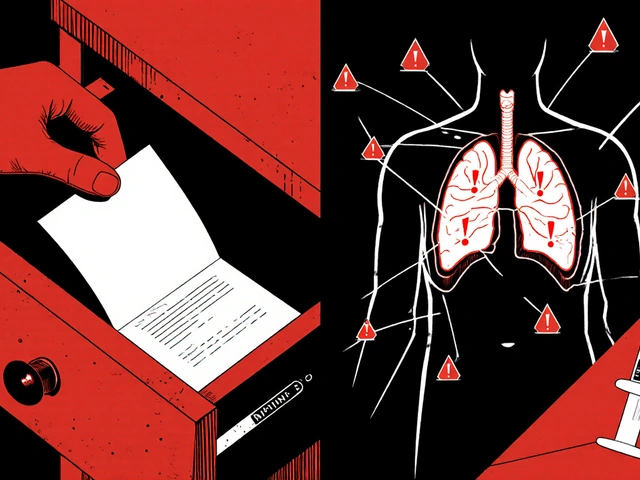Colorectal Cancer Basics: What You Need to Know
Colorectal cancer (CRC) is the umbrella term for cancers that start in the colon or the rectum. It’s one of the most common cancers, but the good news is that early detection and modern treatments can make a huge difference. If you’re reading this, you probably want clear, practical info without the jargon, so let’s get straight to it.
First up, the signs. Most people think CRC only shows up with dramatic symptoms, but early warning signs are often subtle. Look out for persistent changes in bowel habits—like diarrhea or constipation that lasts more than a week—unexplained blood in the stool, unexplained weight loss, and a feeling that the bowel isn’t completely empty after a move. If you notice any of these, don’t ignore them; a quick chat with your doctor can set the right wheels in motion.
Who’s at Risk?
Age is the biggest risk factor. The majority of cases appear after 50, which is why most screening programs start then. However, family history matters a lot. If a parent, sibling, or child has had CRC or certain types of polyps, you’re at higher risk and might need to start screening earlier. Lifestyle choices count, too—diet low in fiber and high in red or processed meats, heavy alcohol use, smoking, and a sedentary life all nudge the odds upward. On the flip side, regular exercise, a plant‑rich diet, and maintaining a healthy weight can lower your risk.
Screening and Diagnosis
Screening saves lives because it can catch precancerous polyps before they turn malignant. The most common test is a colonoscopy, which lets doctors see the entire colon and remove polyps on the spot. Other options include a stool DNA test, flexible sigmoidoscopy, and CT colonography. Your doctor will suggest the best test based on your age, risk factors, and personal preferences.
If something suspicious shows up, a biopsy will confirm whether it’s cancer. Once diagnosed, the tumor is staged from 0 to IV, indicating how far it has spread. Staging guides treatment choices, which usually involve a mix of surgery, chemotherapy, radiation, and, more recently, targeted therapies or immunotherapy for specific tumor profiles.
Surgery remains the cornerstone for most early‑stage cancers—removing the tumor and nearby lymph nodes. For later stages, chemotherapy (often 5‑fluorouracil‑based regimens) and radiation can shrink tumors before surgery or clean up remaining cancer cells afterward. Targeted drugs like bevacizumab or cetuximab are used when the cancer shows certain genetic markers, while immunotherapy works for tumors with high microsatellite instability.
Recovery and follow‑up are just as important as the initial treatment. Regular colonoscopies, blood tests for tumor markers, and imaging keep an eye on any recurrence. Lifestyle tweaks—more fiber, less processed meat, regular exercise—also play a role in staying cancer‑free.
Bottom line: colorectal cancer is common but manageable, especially when caught early. Know the signs, understand your risk, and stay on top of screening. If you have any of the symptoms or a family history, talk to your healthcare provider today. Early action can turn a scary diagnosis into a treatable condition.






